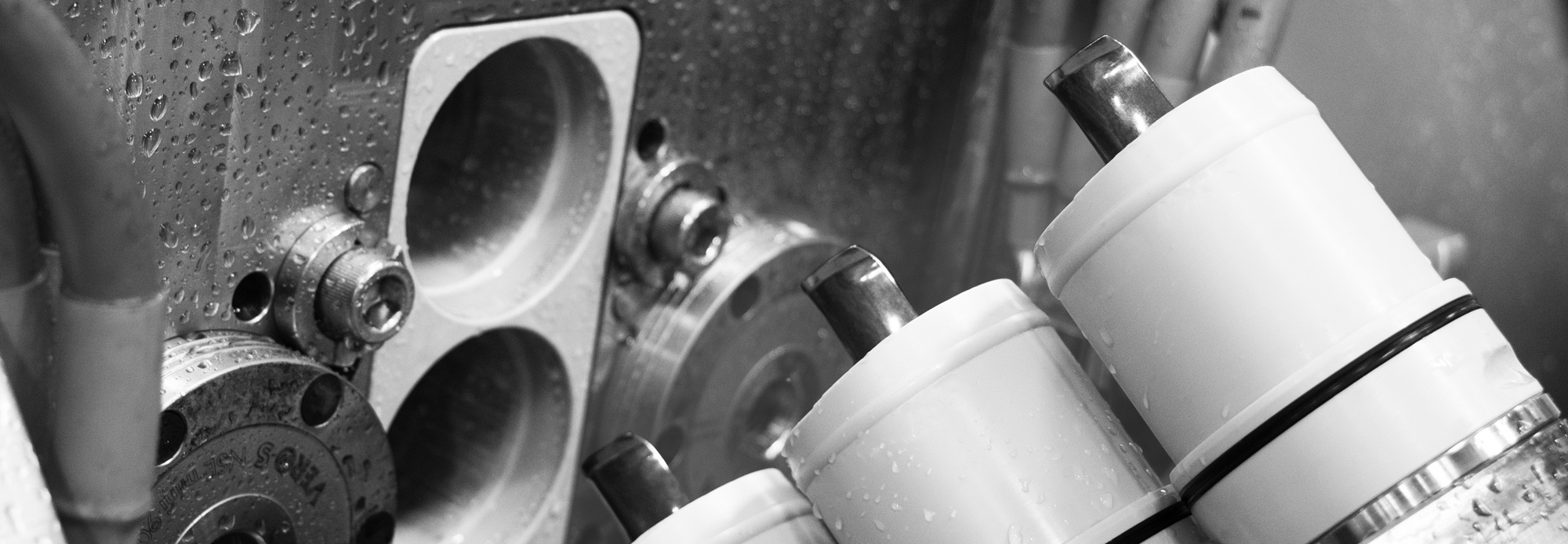Electrochemical Machining
A rapid, cost-effective machining process that eliminates heat and mechanical stress.
ECM is a complex and powerful manufacturing technique which can create features without the typical constraints of mechanical cutting and forming, since it has a lower concentration of heat and force, relying on electrical and chemical potential instead. TURBOCAM primarily uses several pulsed energy techniques which are commonly called “PECM” and achieve exceptionally high precision.

How the process works
Unlike EDM vaporization, ECM is an erosion process that utilizes the principle of electrolysis. The ECM tool (cathode) is positioned close to the work piece (anode) and a low-voltage, high-amperage direct current is passed between the two via an electrolyte. Material is removed by anodic dissolution and then carried away by the electrolyte. The electrolyte also maintains an ambient temperature (25°C.). Watch an informational video here.
Aerospace alloys
The speed of the process is not dependent on the hardness or toughness of the material which means that exotic alloys can be dissolved just as quickly as a soft material.
High accuracy and repeatability
Since there is no mechanical or thermal load on the tool, there is no possibility for tool wear. As such, the quality and dimensional accuracy of the 1st article will be identical to the accuracy of the next 50,000 copies or more. This leads to a significant improvement in process capability.
Surface quality
ECM produces a burr-free, inspection-ready surface of 5-25µ in (0.8 µ m) Ra in a single pass. Therefore, additional inspections and secondary processes such as deburring, hand-finishing, and grinding are unnecessary.
Surface and mechanical integrity
The products are machined without any contact or heat and are not subjected to any mechanical or thermal stress (i.e. there are no heat affected zones). The use of ECM eliminates surface defects such as micro-cracking, re-cast layers, and residual stresses which are common using other machining processes or techniques. As such, fragile products that are thin, easily deformed, or that cannot bear high loads are ideal candidates for ECM.
